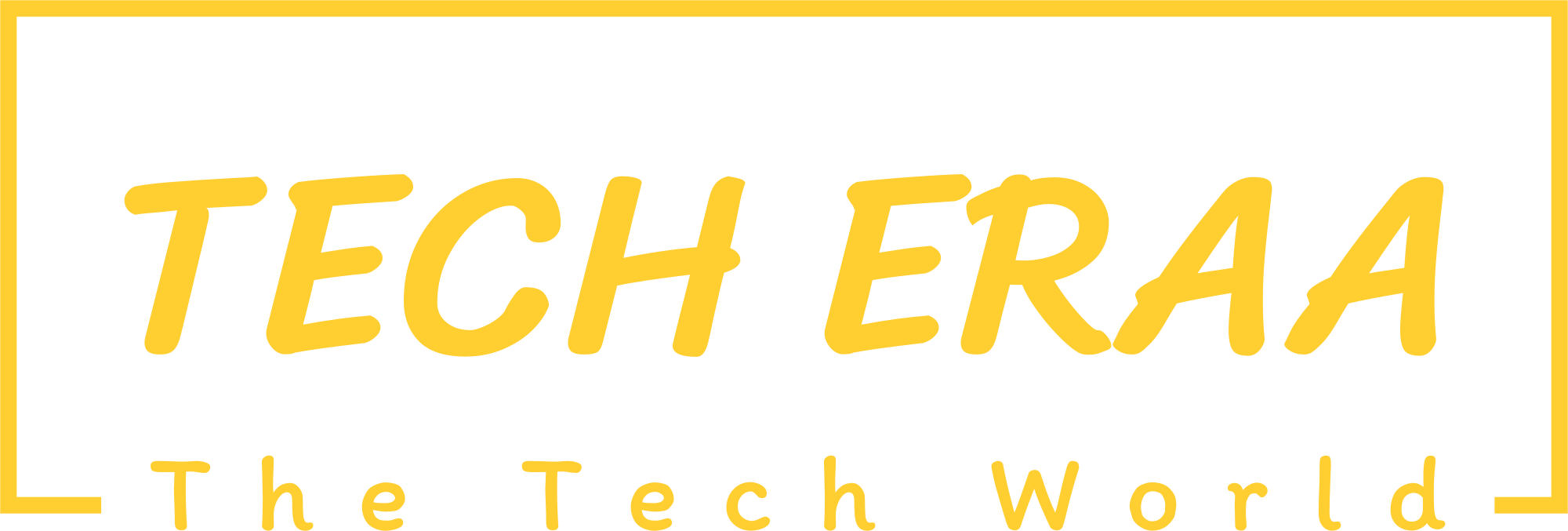Introduction
In the dynamic realm of technology, trends emerge and fade at a brisk pace. However, understanding and harnessing these trends can pave the way for innovation and growth. Tech trends encompass a wide array of developments spanning artificial intelligence (AI), 5G technology, augmented reality (AR), virtual reality (VR), and more. Keeping a keen eye on these trends is imperative for businesses aiming to remain competitive and relevant in today’s digital era.
Artificial Intelligence
Artificial intelligence continues to be a driving force behind transformative innovations across diverse sectors. From healthcare and finance to manufacturing and transportation, AI is revolutionizing processes, enhancing efficiency, and unlocking new possibilities. However, the proliferation of AI also raises pertinent ethical considerations, including data privacy and algorithmic bias.
5G Technology
The rollout of 5G technology heralds a new era of connectivity, promising lightning-fast speeds and unprecedented bandwidth. With its low latency and high capacity, 5G stands to revolutionize industries such as healthcare, autonomous vehicles, and smart cities. The widespread adoption of 5G is set to fuel the proliferation of IoT devices and enable seamless communication between interconnected systems.
Augmented Reality (AR) and Virtual Reality (VR)
AR and VR technologies are transcending their gaming origins to find applications across diverse domains, including education, healthcare, and retail. From immersive training simulations to interactive product experiences, AR and VR are reshaping the way businesses engage with their audiences and deliver content. Integration with e-commerce platforms is unlocking new avenues for virtual shopping experiences and personalized marketing campaigns.
Internet of Things (IoT)
The Internet of Things continues to expand its reach, with an ever-growing ecosystem of interconnected devices transforming homes, cities, and industries. While the proliferation of IoT offers unprecedented convenience and efficiency, it also brings forth security concerns regarding data privacy and cyber threats. As the number of connected devices continues to soar, robust cybersecurity measures are imperative to safeguard sensitive information and mitigate risks.
Blockchain Technology
Blockchain technology extends far beyond its cryptocurrency roots, offering secure and transparent solutions for various applications. From supply chain management to digital identity verification, blockchain holds the potential to revolutionize traditional business processes and foster trust in decentralized systems. The rise of decentralized applications (DApps) and non-fungible tokens (NFTs) underscores the growing relevance of blockchain in diverse sectors.
Cybersecurity Measures
With the proliferation of digital assets and interconnected systems, cybersecurity has become paramount in safeguarding sensitive information and mitigating cyber threats. From ransomware attacks to data breaches, organizations face increasingly sophisticated challenges that necessitate robust security protocols and proactive risk management strategies.
Health Tech Innovations
The intersection of technology and healthcare is giving rise to a myriad of innovations aimed at improving patient outcomes and enhancing the delivery of medical services. From wearable devices that monitor vital signs to telemedicine platforms that enable remote consultations, health tech innovations are revolutionizing the way healthcare is accessed and delivered.
Automation and Robotics
Automation and robotics are reshaping industries ranging from manufacturing and logistics to retail and hospitality. As businesses seek to streamline operations and enhance productivity, the adoption of robotics technologies continues to gain momentum. From automated warehouses to collaborative robots (cobots) working alongside humans, automation is driving efficiencies and transforming traditional workflows.
Green Technology
The imperative for sustainable practices has propelled the development of green technologies aimed at reducing environmental impact and promoting eco-friendly solutions. From renewable energy sources to smart grid systems, green technology initiatives are paving the way for a more sustainable future. By embracing renewable energy solutions and implementing eco-conscious practices, businesses can mitigate their carbon footprint and contribute to environmental conservation efforts.
Edge Computing
Edge computing represents a paradigm shift in data processing, bringing computation closer to the data source and reducing latency in real-time applications. By leveraging edge computing infrastructure, organizations can achieve faster response times and enhanced reliability for mission-critical processes. The integration of edge devices within IoT ecosystems holds immense potential for unlocking new use cases and driving innovation across industries.
Biotechnology Advancements
Biotechnology innovations, including CRISPR technology and gene editing techniques, are revolutionizing healthcare and agriculture. From precision medicine to sustainable crop breeding, biotechnology holds the promise of addressing pressing global challenges and improving quality of life. The rapid pace of biotechnological advancements underscores the importance of ethical considerations and regulatory frameworks to ensure responsible innovation and equitable access to emerging therapies.
Cloud Computing Evolution
Cloud computing continues to evolve, with hybrid cloud solutions gaining traction among enterprises seeking flexibility and scalability. The integration of cloud-native technologies and edge computing infrastructure enables organizations to optimize performance and streamline operations across distributed environments. As businesses embrace digital transformation initiatives, cloud computing remains a cornerstone of modern IT architectures, empowering organizations to innovate and scale efficiently.
E-commerce Transformations
The e-commerce landscape is undergoing significant transformations driven by advancements in technology and shifting consumer behaviors. From the rise of social commerce platforms to AI-driven personalization strategies, e-commerce businesses are leveraging cutting-edge technologies to enhance customer experiences and drive conversions. As online shopping becomes increasingly ubiquitous, businesses must adapt to evolving trends and consumer preferences to remain competitive in the digital marketplace.
Conclusion
In conclusion, the current year is poised to witness unprecedented technological advancements across diverse domains. From artificial intelligence and 5G technology to blockchain and biotechnology, the pace of innovation shows no signs of slowing down. Embracing these tech trends and harnessing their transformative potential is key to driving innovation, staying competitive, and addressing the evolving needs of the digital era.
FAQs
- What role does AI play in everyday life?AI powers virtual assistants, recommendation systems, and predictive analytics, enhancing efficiency and convenience in various aspects of daily life.
- How does 5G technology differ from previous generations of wireless networks?5G technology offers significantly faster speeds, lower latency, and higher capacity compared to its predecessors, enabling new applications and services that were previously impractical.
- What are some potential applications of blockchain technology beyond cryptocurrency?Blockchain technology can be applied to supply chain management, digital identity verification, smart contracts, and decentralized finance (DeFi), among other use cases.
- How are cybersecurity measures evolving to address emerging threats?Cybersecurity measures are incorporating advanced technologies such as artificial intelligence and machine learning to detect and mitigate threats in real-time, along with robust encryption protocols and multi-factor authentication mechanisms.
- What are some examples of green technology initiatives driving sustainability?Green technology initiatives include renewable energy solutions such as solar and wind power, energy-efficient building materials, waste recycling technologies, and sustainable agriculture practices.


